Data Donation Lab
The Data Donation Lab is an initiative at the Zurich higher education institutions that promotes data donation as a methodological approach to collect digital trace data for academic research.
Restricted Data Access is an Obstacle for Academic Research
We all generate a plethora of data whenever we use devices such as smartphones and health trackers or when we interact with digital services such as search engines, social media applications, and streaming platforms. These so-called digital trace data contain information about our (digital) behavior and can help to explore research questions in various academic disciplines. However, usually only the for-profit companies offering the devices or applications have access to these kinds of data, which they use to optimize their products and maximize revenue.
The Solution: Including Citizens in the Data Generation Process
One possibility to access such data for academic research is the collection of data donations from citizens. New data protection regulations provide citizens the right to request the personal data a company such as Google has stored about them and to share these data with other parties such as academic researchers. This kind of data sharing is called a data donation.
Aims of the Data Donation Lab
Collecting data donations for academic research is a novel approach that the academic community is just beginning to explore and develop best practices for. Against this background, the Data Donation Lab has two main goals:
Provide a platform for transdisciplinary knowledge aggregation and dissemination: The Data Donation Lab organizes meetings and workshops through which experiences and knowledge about the collection of data donations can be shared across disciplinary borders.
Provide an Infrastructure to Collect Data Donations: The data donation lab developed an open-source web application called Data Donation Module that facilitates the collection of data donations for academic research. We host an instance of this application that can be used by researchers working at the University of Zurich. Find out more ⭷


